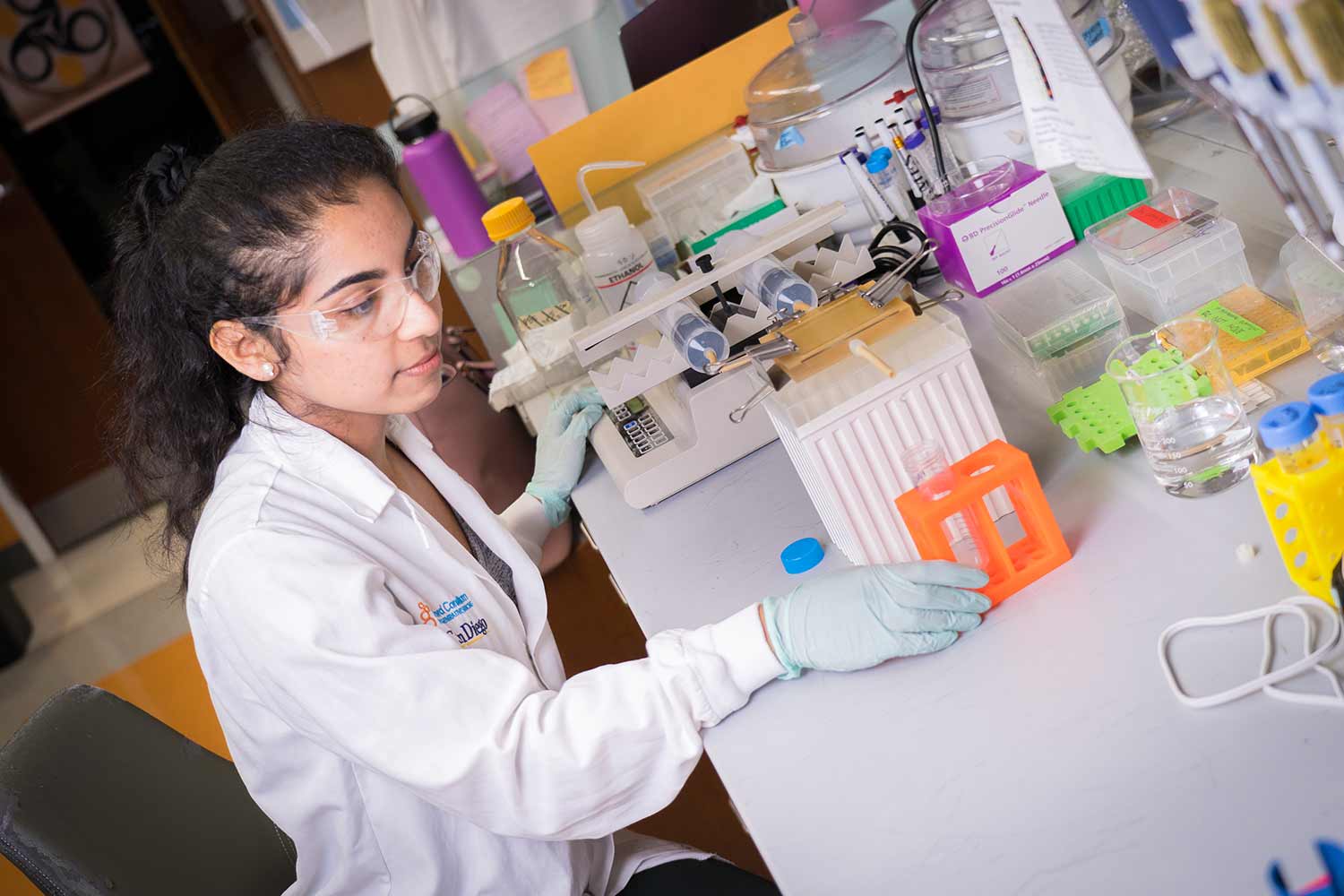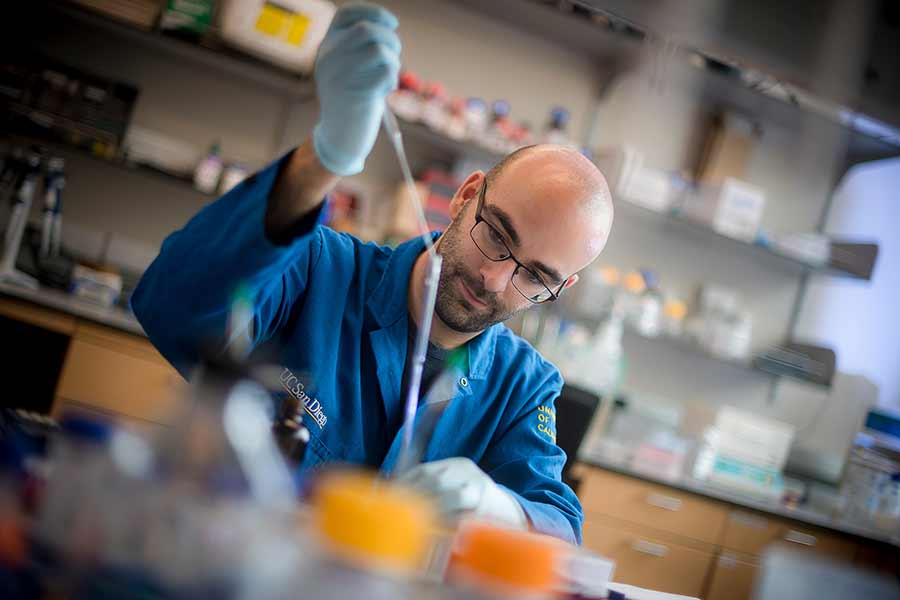By:
- Katherine Connor
Published Date
By:
- Katherine Connor
Share This:

UC San Diego Jacobs School of Engineering Launches Research Ethics Project
How can faculty encourage conversations about ethical research in their labs? What are reasonable expectations for mentoring? How do you decide who is the first author on a paper? Who should students turn to if they feel they’re being asked to publish unrepeatable results? How do we foster diversity in all areas of research, from topics studied, to testing, to creating an inclusive environment for diverse research teams?
Building a sustained culture where students, faculty and staff have the resources and comfort level to engage in these kinds of ethical conversations on an ongoing basis is the goal of the Research Ethics Project at the UC San Diego Jacobs School of Engineering. The project, which is funded by the National Science Foundation (NSF), entered phase two in May.
“I don’t know of any other systemic approach such as we’re developing here,” said Michael Kalichman, founding director of the UC San Diego Research Ethics Program, and director of the Jacobs School Research Ethics Project. “This is very different than more formal approaches people typically use; we’re trying to do something in a widespread, informal way that uses a variety of different approaches to encourage conversations. This is an experiment, but we have good reason to believe it will work.”
The project, co-led by Jacobs School of Engineering Dean Albert P. Pisano and Executive Vice Chancellor Elizabeth H. Simmons, aims to infuse ethics conversations into research labs, the curriculum and the life of the engineering and computer science community at UC San Diego. Instead of mandating a one-time course, the project aims to empower faculty, and the community at large, to find ways to incorporate ethics into their labs, courses, and conversations.
The project is underpinned by four evolving guideline documents shaped by Jacobs School graduate students, postdocs and faculty. These guidelines are focused on principles of responsible research, mentorship, data management and authorship.
“This project is a unique opportunity for faculty, staff, and students to participate in important dialogues about the ethical conduct of research,” said Simmons. “I value the conversations I joined as part of this initiative, and look forward to additional engagement across our campus community.”

The intent is for the guideline documents to serve as living records to be updated as needed, and to be used as starting points for conversations about ethical questions.
This is important work. Talking about ethics and the practice of engineering research is directly relevant to creating an anti-racist academic community," said Pisano. "I encourage our faculty, students and staff to engage with this program. It is a unique opportunity to participate in structured dialogue on topics that can be hard to talk about, especially if you are a student or a postdoc."
Graduate students engage
Ross Turner, a materials science graduate student and Gordon Scholar, helped shape the draft documents. He and a group of Gordon Scholars were one of several groups of students that met to review the draft guidelines, and ensure issues important to students were included.
“I have always seen ethics as a skill that you need—you always need to be working on doing better and raising standards for those around you,” Turner said. “People make mistakes, but we can prevent a lot of them by just thinking through some of this, which is what this project will enable.”
Issues of mentorship, authorship on papers, and repeatability of data and experiments are important to students. Pranjali Beri, who recently completed her Ph.D. in bioengineering and was part of a group of students and engineering department chairs who also provided input on the guidelines, agreed that mentorship was a key component of research ethics, and not just for students.
“Mentorship is not just for students but also for young faculty,” said Beri, who was recognized as a 2020 Siebel Scholar for her research into biomarkers to identify the most aggressive cells in tumors. “New faculty don’t often receive this sort of training on how to manage grad students or post docs, and it’s been just a little while since they’ve been grad students themselves. This project’s guidelines on mentoring help define mentorship and provide suggestions for new faculty mentoring.”
Beri added that for students, having a mentor outside of their advisor can be helpful to get more perspectives on career and management styles, and as a trusted source to raise concerns about any issues happening in their lab.
“If students feel they need to suffer through grad school to please their advisor, I think talking about it with other faculty and knowing that that’s not what it’s supposed to be, would help those students succeed,” Beri said. “Some of these graduate students will go on to become professors themselves, so if they have just only one mentor experience that’s exactly what they’ll do when they become mentors themselves—it’s fostering a chain of poor mentorship.”
Overall, the goal of the Jacobs School Research Ethics Program is to empower faculty and students to feel comfortable having these conversations through structured support—including resources for faculty interested in teaching a designated course on ethics or incorporating it into existing courses—as well as unstructured means, like ongoing movie and discussion events, or incorporating questions on ethical dilemmas into guest lecturers’ remarks.
Building a culture of ethics requires a clear framework to govern the ways research mentors and mentees interact with each other and share our work with the outside world,” said John McCartney, professor and chair of the Department of Structural Engineering at UC San Diego. “The lessons learned from our collaboration with the Research Ethics Program have been very helpful and educational in the development of a framework that is specific to the Jacobs School. As faculty, we need to also work hard to instill ethical principles into our teaching and learning environment, as ethical behavior developed in the classroom can affect ethical behavior in practice or in research.”
Share This:
Stay in the Know
Keep up with all the latest from UC San Diego. Subscribe to the newsletter today.



